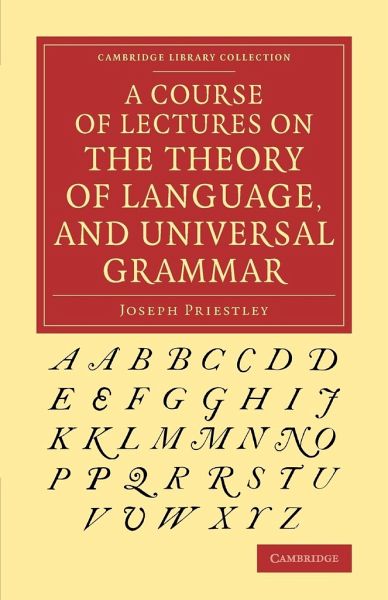
A Course of Lectures on the Theory of Language, and Universal Grammar
Versandkostenfrei!
Versandfertig in 1-2 Wochen
42,99 €
inkl. MwSt.

PAYBACK Punkte
21 °P sammeln!
The English polymath Joseph Priestley (1733-1804) wrote on a wide range of scientific, theological and pedagogical subjects. In 1761, he produced the influential textbook Rudiments of English Grammar (also reissued in this series). The following year, having taken up a teaching position at Warrington Academy, he released this outline of nineteen lectures on a variety of linguistic topics. Although it was not published, it was distributed to other dissenting academies. Intended to give teachers a starting point when discussing 'the art of language' in its diverse forms, the lectures range from ...
The English polymath Joseph Priestley (1733-1804) wrote on a wide range of scientific, theological and pedagogical subjects. In 1761, he produced the influential textbook Rudiments of English Grammar (also reissued in this series). The following year, having taken up a teaching position at Warrington Academy, he released this outline of nineteen lectures on a variety of linguistic topics. Although it was not published, it was distributed to other dissenting academies. Intended to give teachers a starting point when discussing 'the art of language' in its diverse forms, the lectures range from articulation and the alphabet to comparative linguistics, syntax, metre and the evolution of language. Along with its companion work, it established Priestley as one of the leading grammarians and educators of his time. Modern readers will gain a deeper understanding of his drive to increase and share knowledge of how and why speech and writing served their purpose.




